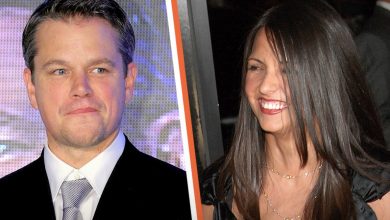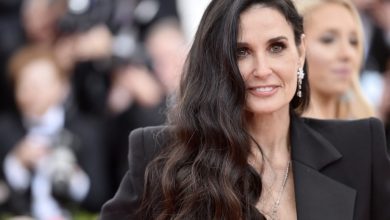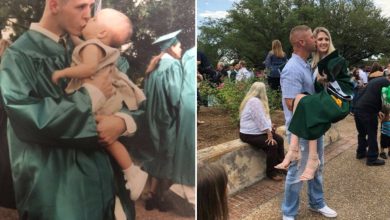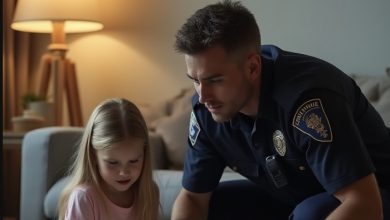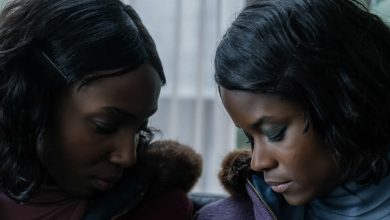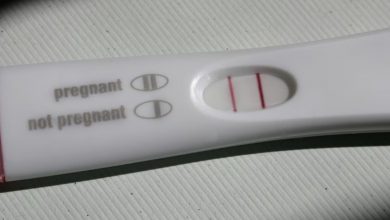A husband claimed his ailing wife didn’t need her inheritance until the judge read the note
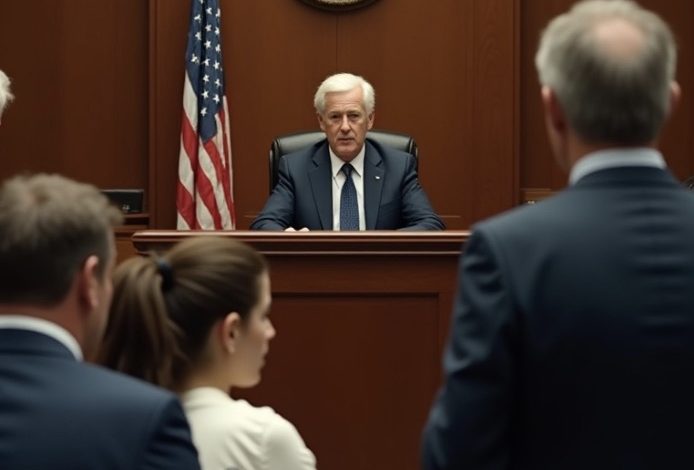
“In her condition, she doesn’t need an inheritance!”
Arthur Gregory laughed loudly in court, his confidence echoing through the wooden chamber. But when Maria handed the judge a folded note, the entire courtroom went silent.
“Your honor,” Arthur began smoothly, his voice trembling just enough to sound sincere, “I gave my wife the best years of my life.” He leaned forward slightly, hands resting on the bench, his dark suit flawless. Every movement was deliberate, rehearsed — the picture of a devoted husband. “But Maria’s condition is getting worse. She barely reacts. She doesn’t speak. I’m exhausted. Her father’s inheritance is full of complications, and in her state, she can’t manage them. I only want to protect her, to save her from more pain.”
His words hung in the air like a practiced performance. Judge Tamara Peterson studied him quietly, her expression unreadable.
Maria sat in her wheelchair beside her lawyer, Jennifer Svetlov. Her face was pale and still, her hands trembling slightly as they gripped a folded note. Her once-bright eyes were now hollow, reflecting months of suffering.
Jennifer rose, her tone calm but sharp. “Mr. Gregory, you say you want to protect your wife. Tell me—was transferring one hundred and fifty thousand dollars to an offshore account two weeks before filing this lawsuit also part of that protection?”
Arthur’s lawyer, Olga Larson, quickly objected. “Irrelevant, your honor!”
“Overruled,” the judge replied firmly.
Arthur forced a thin smile. “Business transactions, Ms. Svetlov. I work hard to give Maria the best care. That money is for her benefit.”
Jennifer tilted her head. “And your frequent trips to the coast, where your coworker Valerie Sokolov happens to live—were those business, too?”
Arthur’s eyes flickered with anger. “Those are disgusting accusations!”
Jennifer didn’t back down. “And what about your meetings with Sergei Belov, where receipts show you discussed kickbacks and supply deals?”
The courtroom tensed. Arthur’s voice rose. “We’re here to discuss my wife’s health, not my personal life!”
“Exactly,” Jennifer said quietly. “We’re here because you want control of your wife’s inheritance. An inheritance her father protected with strict conditions—as if he already knew this would happen. Mr. Gregory, do you really think your wife cannot manage her own affairs?”
Arthur turned toward Maria, his lips curling in contempt. “My wife is practically a vegetable,” he said coldly. “Why would she need an inheritance?”
The silence that followed was suffocating. Even the judge froze. Then, slowly, Maria lifted her trembling hand and gave Jennifer the note she’d been holding. Jennifer carried it to the judge without a word.
Judge Peterson unfolded it carefully. Inside was not a letter but a drawing — a portrait of a little girl with kind eyes and a bright smile. At the bottom, written in elegant handwriting: For my brave Kate. Thank you for the light. Your Aunt Maria.
The judge raised the drawing for everyone to see. “This,” she said softly, “is not the work of a broken mind.”
Just then, the courtroom doors opened. Two police officers entered, followed by a man in a gray suit. “Apologies for the interruption, your honor,” he said, flashing a badge. “Senior Investigator Peterson.”
Arthur’s confident smile faded.
Maria’s world blurred. The months of pain, fear, and hidden strength came crashing down. Darkness swallowed her as she fainted.
When she opened her eyes, she was back in her hospital bed months earlier, remembering everything that had led her here.
Six years before, on a rainy afternoon, Maria met Arthur for the first time. She slipped on the wet pavement, but he caught her arm just in time. He was charming, confident, and handsome. Under his umbrella, everything felt safe. He introduced himself as Arthur Gregory, a pharmaceutical manager, and walked her home through the rain. She couldn’t have known that this man — her rescuer — would one day become her destroyer.
Their romance was quick, bright, and blinding. Within months, they were married. But Maria soon realized that Arthur’s love came with control. He liked admiration, not independence. “You don’t need to work,” he often said. “Focus on being my wife.”
When she lost two pregnancies, his sympathy faded into cold disappointment. He became distant, cruel in subtle ways — mocking her art, her dreams, her worth.
Maria’s only peace came from visiting her father, Stephen, a painter like her. He was her mentor and her safe haven. But one night, driving home from his studio, Maria’s car spun out on a rain-slick road. The crash left her paralyzed from the waist down.
Arthur’s public performance of concern was flawless. He told reporters he would “do everything possible” for his wife’s recovery. But in private, he treated her like a burden.
At the clinic, Maria stopped speaking. Her world shrank to silence — until one day, a small girl appeared at her door.
“Hi,” said Kate, a five-year-old with bright eyes and two tiny braids. She was the daughter of a nurse. “Why are you sad?”
Maria didn’t reply. Kate, undeterred, pulled out crayons. “I’ll draw you a sun!”
That drawing — bright, crooked, full of warmth — awakened something inside Maria.
Soon, Kate began visiting daily, bringing laughter and color. “You have hands,” the girl said simply one day. “You can draw.”
And she did. Slowly, painfully, Maria began sketching again. With the help of her kind caregiver, Inna, and later a local café owner named Kyle, she started to heal. Kyle treated her like a person, not a patient. One day, he handed her a tablet. “Try drawing on this,” he said gently. “You still have something beautiful to say.”
Her first drawings were messy, dark. But then came light — a flower pushing through snow, a child’s smile.
Then came the truth. One night, Inna overheard Arthur on the phone. “Once she’s declared incompetent, I’ll control everything,” he said. “Valerie and I will finally have our freedom.”
Maria’s blood ran cold.
Days later, her father died of a heart attack. His will left everything to Maria but only if she completed a series of paintings called The Light Within. Arthur was furious. “This is insane!” he shouted. “You can’t even hold a brush! I’ll challenge the will!”
That was when Maria decided to fight back.
She contacted her old friend Jennifer, now a lawyer. Together, they built a secret case. Kyle helped gather evidence. Inna watched Arthur’s movements. And deep in her father’s studio, Maria found proof that changed everything — his diary, and a report from a private investigator.
It revealed Arthur’s affair, his corruption at work, and something far worse: her car’s brake line had been tampered with. It wasn’t an accident.
Maria’s father had discovered the truth shortly before his death — and paid the price.
When Arthur caught them in the act of uncovering his crimes, violence followed. Kyle fought to protect Maria, and though she was terrified, she screamed — her first loud sound in months — long enough for the police to arrive. Arthur and his mistress were arrested, then released on bail. But Kyle had already handed over the evidence.
Now, in court, all the pieces had come together.
Judge Peterson’s voice was steady but fierce. “Mr. Gregory, the court finds no evidence that your wife is incompetent. In fact, the evidence suggests you have acted with deceit and cruelty.”
She turned to Maria. “Mrs. Gregory, this court recognizes your courage. You are a woman of extraordinary strength.”
Then, facing Arthur again, she said coldly, “Senior Investigator, you may proceed.”
The officers stepped forward. “Arthur Gregory, you are under arrest for attempted harm, fraud, and illegal business activities.”
The courtroom buzzed as Arthur shouted, “You’ll regret this, Maria!” But his voice faded behind the closing doors. Valerie, trembling, quickly turned on him. “He made me do it! I’ll tell you everything!”
Maria watched silently. Her lawyer placed a hand on her shoulder. “It’s over,” Jennifer whispered. “You’re free.”
A year later, a bright art gallery was filled with people. On the walls hung Maria’s series, Children, the Flowers of Life. The paintings, full of hope, were inspired by young hospital patients like Kate.
Maria sat in her wheelchair, smiling as friends and reporters congratulated her. Arthur was serving a long prison sentence. His crimes had cost him everything.
But Maria had gained more than freedom — she had purpose again. Inna was by her side, now a close friend. Kate and her mother were both healthy. Kyle stood near her, his eyes soft and proud.
When the crowd quieted, Kyle took the microphone. “I don’t have a long speech,” he said. “But Maria, I promise I’ll be here — to make you tea, to carry your canvases, or to just sit with you in silence. And when you walk again, I’ll be right beside you.”
He knelt and opened a small box. “Will you marry me?”
Tears filled Maria’s eyes. “Yes,” she whispered.
Six months later, she walked across her studio with the help of a cane — each step steady and strong. She bent down beside a little boy painting clumsily and smiled. “Let’s do this together,” she said, guiding his hand.
Outside the window, Kyle was unloading art supplies, sunlight reflecting off the glass. Maria looked at him and smiled.
“Kyle,” she said softly that evening, resting her head on his shoulder. “There’s a boy named Egor at the orphanage. He loves to draw. Maybe we could help him?”
And they did. Weeks later, they found Egor — and, miraculously, his lost twin brother, Matvei.
The two boys became part of their family. A year after that, Maria and Kyle welcomed their daughter, Olga.
Every wall in their home was covered with drawings — suns, flowers, and smiling children — each one proof that even after the darkest storms, light can return.

